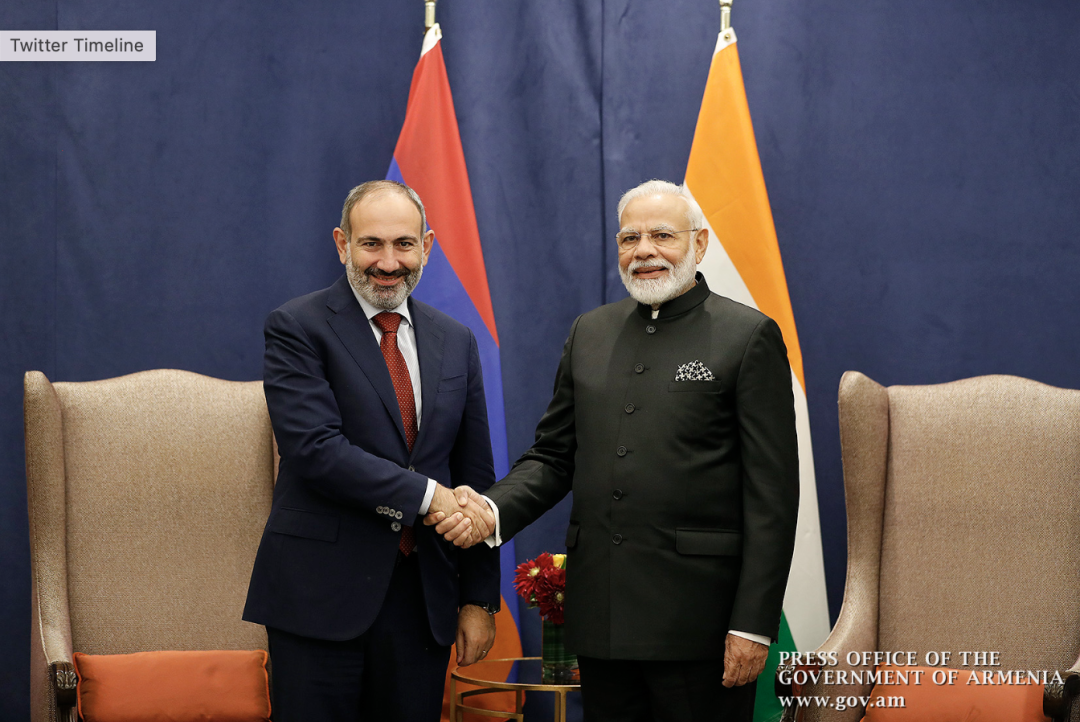
Armenia - India Conference Concludes with Commitments to Further Enhance Common Agenda

On November 27-29, the Armenian Ministry of Foreign Affairs held the first international conference entitled ‘Armenia-India: New Incentives for Millennial Relations’ on the occasion of the 30th anniversary of establishing diplomatic relations between Armenia and India.
The conference involved four thematic panels: Historical connections: Centuries-long cooperation; Armenia and India in the framework of global and regional developments; Flexible friendship amid geopolitical shifts: Armenia-India bilateral relation; Perspectives of multidimensional cooperation.
International relations experts, diplomats, and foreign country representatives delivered remarks at the event. The speakers of the conference reiterated the need to further enhance the common agenda and coordinate actions in all possible platforms and areas amid rapid political, economic, and technological transformations.
The Deputy Foreign Minister of Armenia Mnatsakan Safaryan stated at the opening of the international conference that over the past three decades, the friendly ties between Armenia and India have significantly developed in all areas, including political, economic, and humanitarian.
“Strengthening comprehensive partnership with India is among the priorities of the Armenian foreign policy. In the recent period, the countries achieved progress in key areas such as defense and regional security, international transport and connections, tourism, trade, agriculture and science, healthcare, and IT. Armenia can benefit from India's rapid progress to increase state defensibility and develop its economy. Amid the rapid changes in international trade and shipment routes, we must consider the possibility of expanding imports and exports to the south. There is huge untapped potential for boosting economic relations and trade and utilizing investment opportunities," the diplomat said.
Charanjeet Singh, Joint Secretary for Eurasia of the Indian Ministry of External Affairs, also praised the expanded cooperation in education, technology, tourism, and beyond.
“By moving forward, we must further enhance the existing cooperation, particularly in the field of medical science. More than 5000 Indians have studied at the Medical University of Armenia during all these years. But I am sure that we have an opportunity to send more students”, he added.
Former Ambassador of India to Armenia on Possible Joint Armament Production with Armenia
Meanwhile, the former Ambassador of India to Armenia Reena Pandey commented on the reports related to Armenia’s purchase of arms and ammunition from India.
“All countries have defense cooperation agreements. So, it is very good we have one with Armenia, and we can possibly cooperate on joint armament production as well. We both can share our expertise in defense”, she noted.
In response to the question about military cooperation, the former ambassador stressed the importance of conducting joint military exercises with the Armenian military.
Ambassador: Tangible Results of Military Cooperation Between India and Armenia are Expected
Commenting on the $260 million arms purchase from India, Armenian Ambassador to India Yuri Babakhanyan told the press that Armenia and India established successful cooperation, which will produce tangible future results.
Babakhanyan emphasized that cooperation with India has strategic objectives and is not limited to a single deal.
“Cooperation in the field of armaments will continue. This is just the beginning, and we must continue to re-equip our army, including with the help of friendly India," the ambassador added.
The diplomat also outlined that India has repeatedly taken an assertive stance towards Armenia's territorial integrity, which implies that India is against Azerbaijan's "extraterritorial corridor" demand that violates the sovereignty of Armenia.
“India is also interested in the Black Sea-Persian Gulf transport corridor since it is the shortest route to Europe through the territories of Iran, Armenia, and Georgia. The corridor is not just the shortest route bypassing the Suez Canal, it is also the safest route for India as it runs exclusively through the territories of friendly countries, which is a very crucial factor in such turbulent times", he concluded.
Read also: India to Supply Armenia with Large Batch of Weapons
See Also


Mirzoyan Meets US Deputy Assistant Secretary Joshua Huck

Azerbaijani President Holds Talks with UAE and German Business Delegations on Economic Cooperation

Grigoryan Confirms Armenia’s Readiness to Dissolve OSCE Minsk Group Upon Peace Treaty Signing

Azerbaijani Official Warns of Ecological Risks to Caspian Sea, Similar to Lake Urmia and Aral Sea

